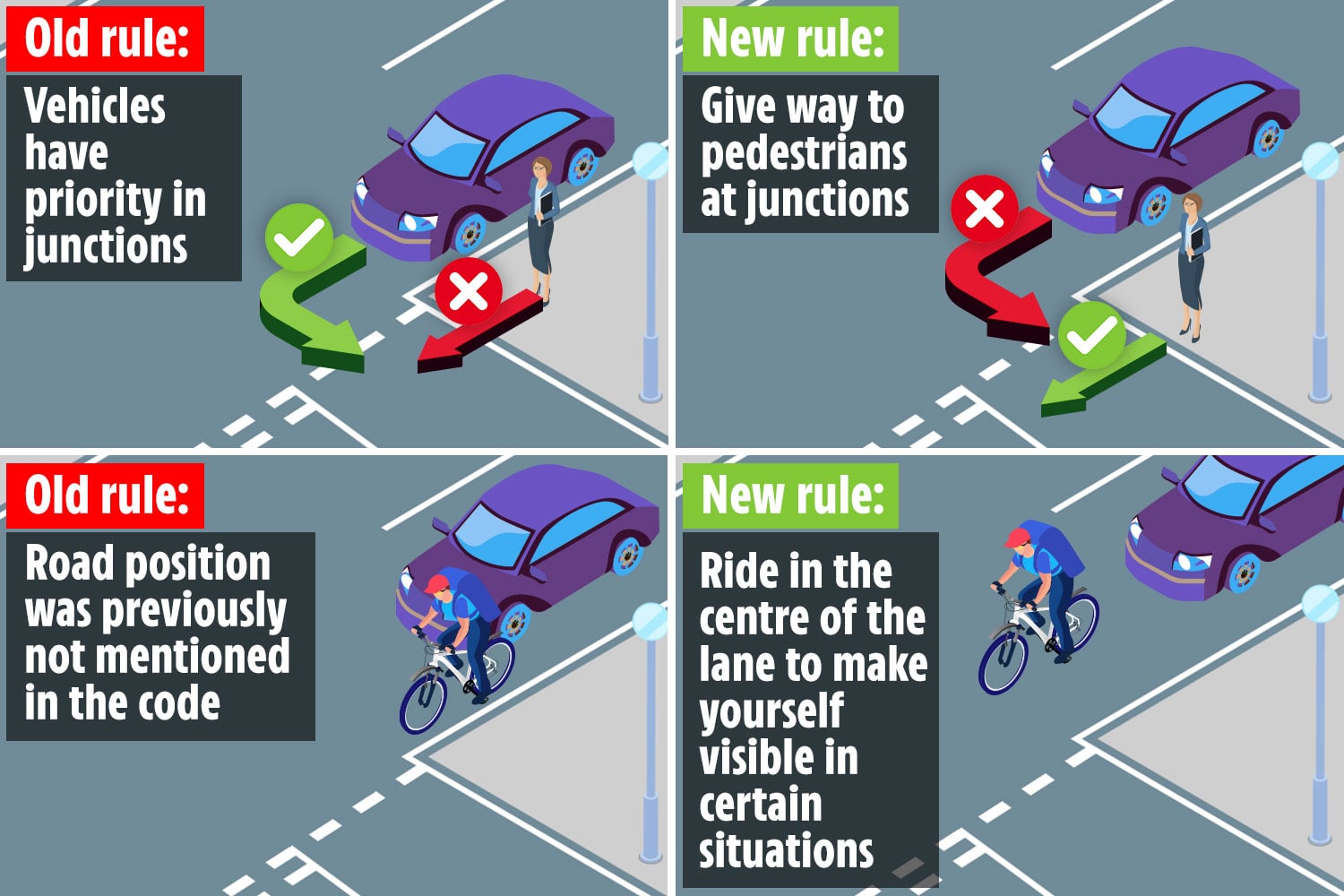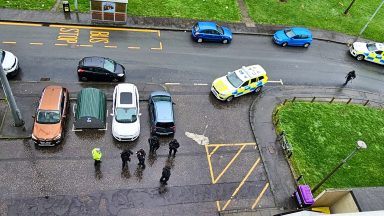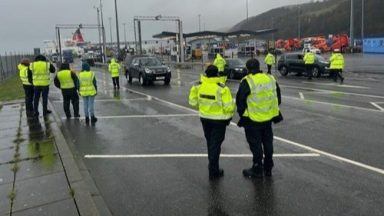When the Highway Code changes later in January, it will have an impact on all road users.
Motorists, cyclists and pedestrians will be affected by the new rules, which aim to create a “hierarchy” on the travel network.
Here’s everything you need to know before the UK-wide changes comes into force on January 29.
What is the hierarchy?
The new Highway Code “hierarchy of road users” puts “vulnerable” road users at the top.
Pedestrians, in particular children, elderly adults and those with disabilities, are in the first position, followed by cyclists, horse riders and motorcyclists.
Cars, vans and minibuses, larger passenger vehicles and HGVs make up the lower half of the hierarchy.
So what’s new?
In short, the changes will give pedestrians and cyclists priority over drivers at junctions.
Pedestrians previously only had the right of way if they were already crossing a road when a driver approached.
Vehicles will now have to give way when someone is waiting to cross, similar to the rules for a zebra crossing.
Cyclists, meanwhile, will be advised to ride in the middle of the lane to make themselves more visible, and motorists will have to let them pass before turning into a new road.
 Police Scotland
Police ScotlandWhy is the code changing?
The UK Government, which is responsible for the Highway Code, says it wants to make the roads safer for cyclists, pedestrians and horse riders.
A majority of people who responded to a consultation on the changes agreed with them.
Will it cause problems?
Organisations representing cyclists and motorists both fear there could be disruption and other issues on the roads.
They are worried not enough has been done to inform road users about the changes.
“This puts the most vulnerable on our roads at unforgivable risk,” Duncan Dollimore, head of campaigns at Cycling UK, said.
“Now is the time to right the misunderstanding on our roads, not tomorrow when it is too late.”
The AA polled more than 13,000 members and found that just a third (33%) knew the changes were being introduced, with a fifth (20%) believing the plans were simply “false”.
Edmund King, AA president, said: “The government needs to up the ante on getting the message out to drivers about these changes.
“These are fundamental changes to the Highway Code and it is imperative road users understand them ahead of time.
“We had hoped that once the changes were initially announced back in June and finalised in December, there would be a big education push to alert drivers to these plans. This hasn’t happened, although we would still welcome it.”
However, the UK Government defended the publicity campaign to promote the changes.
A transport department spokesperson said: “The proposed upcoming changes to the Highway Code will improve safety for cyclists, pedestrians and horse riders and were announced to national press.
“The department has established a working group of key organisations to ensure that messages about the changes are as widespread as possible and our well-established THINK! campaign will continue to ensure all road users are aware both when these changes come into effect and beyond.”
Follow STV News on WhatsApp
Scan the QR code on your mobile device for all the latest news from around the country


 iStock
iStock

























